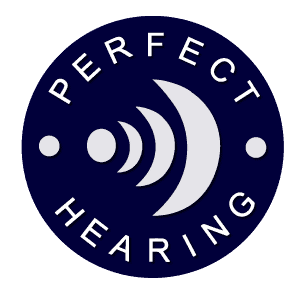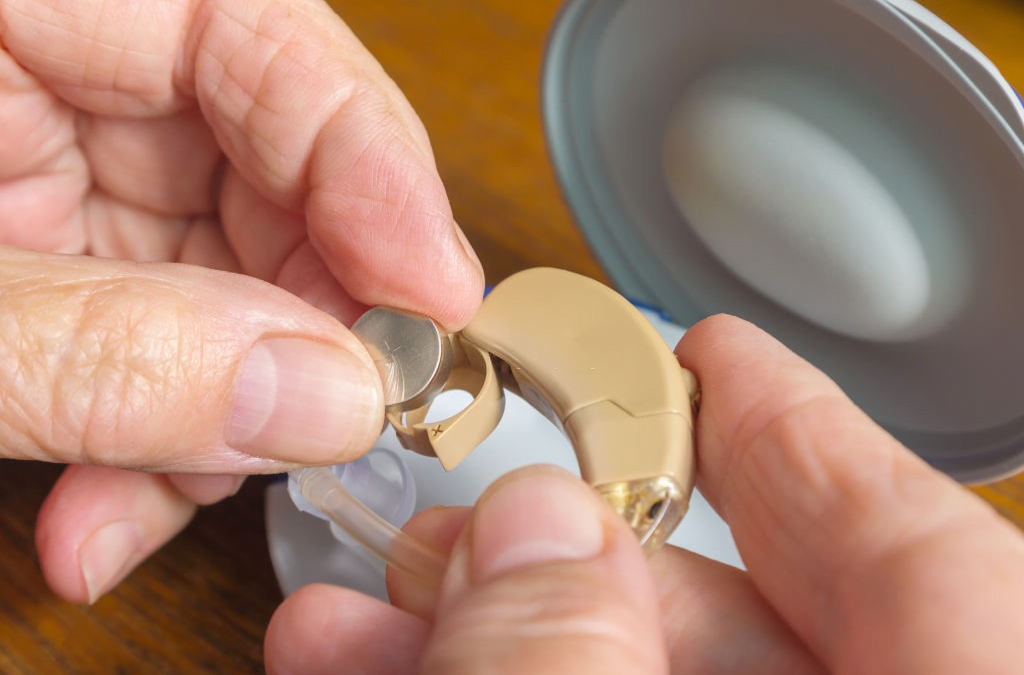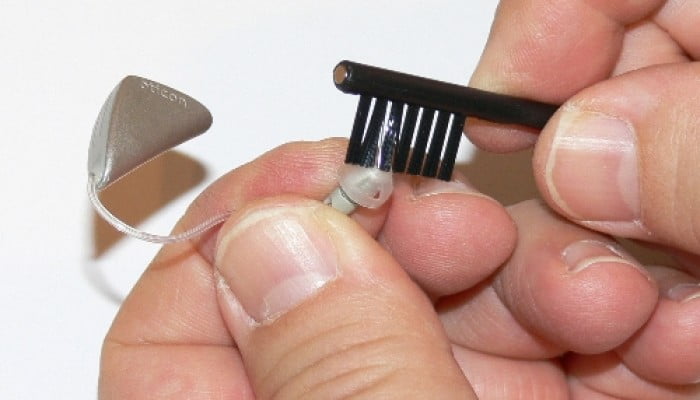Amid the COVID-19 pandemic and the lockdown/movement control order in many countries, people who are using a hearing aid may face some daily difficulties, especially when audiology services are unavailable due to office closures.
Fortunately, users of hearing aids are still able to perform some simple maintenance at home, such as:
1. Performing visual checking daily
- check the wax basket
- check the hearing aid dome to find out if there is any wax on
2. Checking the battery
- Always have a spare battery handy. When not in use, store them in a cool, dry place.
- If you’re using a rechargeable hearing aid, give it the recommended number of hours to reach a full charge.
3. Cleaning the hearing aid regularly
- Clean your hearing aid regularly with a soft, dry cloth.
- If your hearing aid utilizes earmolds, you can detach them from your hearing aid and wash them in warm soapy water. Don’t forget to rinse well. Dry the earmolds before putting them back on.
- Are you using dome-shaped earpieces with open-fit hearing aids? If you are, clean it with a dry cloth or special tool provided by your audiologist is a better option.
How to improve your Listening Experience at home during a lockdown/movement control order?
Even if you’re at home, with good communication skills, you and your housemates/family members are able to improve your listening experience. Take the steps below and give it a try!
- Make sure you and your conversation partner are in the same room.
- Your conversation partner should face you directly when speaking.
- As your listening partner speaks, let him know if you have difficulties listening or understanding (don’t pretend, it doesn’t help).
- Use closed captioning when watching TV.
- Take some listening breaks if you need.
Ask your conversation partner to speak slower anytime if you have difficulty following his speech.
Foods to Maintain Good Hearing Health
When people hear the phrase “hearing protection,” what comes to their mind is earplugs and noise-cancelling headphones — not foods like bananas or broccoli. But foods like these can make a big difference.
Foods that promote and maintain good hearing health work by nourishing your body with all the essential nutrients like vitamins and minerals. While these nutrients are not so much a cure for hearing disabilities or a guarantee against hearing loss, these nutrients can help protect your hearing and also boost your overall ear health.
Below are a few foods that help you maintain good hearing health and the nutrients that make it possible:
Beans and leafy greens — Folate
Folate is usually a B-vitamin and is associated with parental vitamins because it’s an essential nutrient during pregnancy. But, the importance of folate doesn’t just stop at birth.
A high intake of folate has also been associated with a decreased risk of age-related hearing loss. Consume foods rich in folate to reduce the risk of hearing loss and maintain good hearing health. Foods rich in folate include kidney beans, lentils, chickpeas, spinach, etc.
Avocado, dark chocolate, whole grains — Magnesium
Magnesium is a mineral known to play a crucial role in our physical health. Its importance includes normalizing blood pressure, keeping the bones healthy, and neuroprotective effects.
The mineral is also known for its ability to treat hearing loss, especially when the damage is a result of exposure to loud noise. Therefore, it is essential to incorporate a healthy amount of magnesium-rich foods in your diet to maintain good hearing health.
Nuts and seeds — Zinc
Zinc works to keep your immunity in check, heal wounds, and promote cell growth. When you take zinc tablets or zinc-rich foods, you boost your immune system and prevent illness from progressing.
For instance, when you avoid the common cold from progressing, you can reduce your risk of getting an ear infection, which plays a role in hearing loss. Include zinc-rich foods such as almonds, sesame, hemp seeds, cashews, etc. in your diet to maintain good hearing health.
Bananas, oranges, potatoes — Potassium
Potassium is essential for regulating body fluids, and inner-ear fluids are vital for hearing health. Just like Magnesium, adequate Potassium levels support a healthy heart, normalize blood pressure, and improve muscle strength. Conversely, low Potassium levels will contribute to age-related hearing loss.
Potassium-rich foods to add to your diet include Bananas, lima beans, melons, milk, oranges, potatoes, spinach, tomatoes, yoghurt, potassium supplements.
Flaxseed, walnuts, and fish — Omega 3s
Fish oil is a popular source of omega-3 fatty acids, and getting enough in your diet could prevent age-related hearing loss. If seafood isn’t your thing, other sources of omega-3 fatty acids include walnuts, chia seeds, flaxseed, etc.
Mushrooms, eggs, fortified and cereals — Vitamin D
The ear is full of soft bones, and Vitamin D is essential to keep them — just like other bones in your body — healthy. Vitamin D doesn’t occur naturally in many foods, but the fortified options are readily available.
You can find them in breakfast cereals and milk (cow, soy, almond, and oat). You can also get Vitamin D along with omega-3s in fish, or other dietary sources like egg yolks and mushrooms.
B12 — supplemented foods
Vitamin B12 has helped people who suffer from chronic tinnitus recover significantly. Even though it’s mostly gotten from supplements diary and meat products have a high amount of Vitamin B12 too. You can also choose to get a supplement in a pharmacy or fortified breakfast cereals and milk.
Do remember that not everyone has the same dietary habits. Before making any changes to your diet, talk to your doctor to be sure that the changes are okay for you or your family members.
In a Nutshell
In times like this, it’s important to take care of yourself. Doing simple hearing aid maintenance and taking extra care of our diet not only helps to maintain good hearing health but your overall health too.
Last but not least, even if you need to stay at home amid the COVID-19 pandemic, don’t forget you can still take steps to ensure your hearing aid still function properly. If you need any advice, please do not hesitate to get in touch with us.



